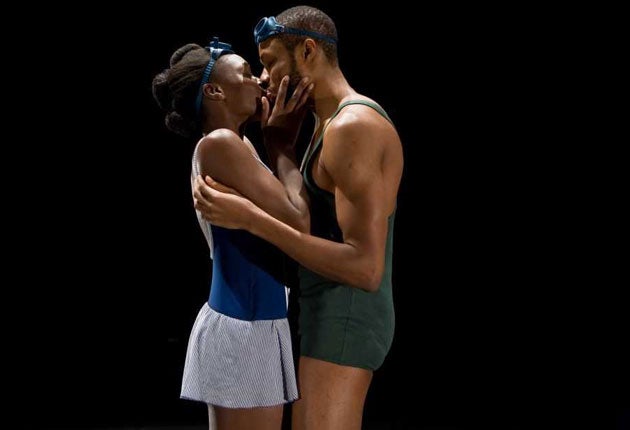Greek tragedy: It's not the end of the underworld
The great Greek tragedies will always resonate, says Sarah Ruhl, writer of a new play based on the myth of Eurydice

How does one stage or even think about Greek tragedy in the present theatrical moment? In the age of botox, one might argue that the equivalent of Greek masks are actors' faces frozen in expressions of neutrality rather than extreme comedy or tragedy. In this strange digital era, in this era of celebrity masks, how do we approach the old stories, old stories built on one solitary gesture – looking back – which undoes everything?
I wrote Eurydice partly because I was in love with the Greeks and felt that to find my way back into the universality of Orpheus and Eurydice, the story had to be particularised and made contemporary. So that the architecture of the larger myth remained, but inside of the myth, I embedded material that was personal, specific, almost transparent.
I was also interested in giving Eurydice a voice. Hundreds of artists have tried to winnow their way back into the Orpheus story, usually from his point of view. But I'm interested in anyone who dies twice, and what her experience of dying was. And I wondered if Eurydice embodied language, whereas Orpheus embodied music. And I wondered who else she met in the underworld. And I wondered about the stones who were said to cry when they first heard Orpheus's music. I was interested in what happens when the basics of the story become signposts for a terrain that is more unfamiliar.
So, the basics of the story: Eurydice and Orpheus get married. Eurydice dies. (Whether she is bitten by a snake or chased by a deranged shepherd, as in one version.) Orpheus comes down and sings the most beautiful music for the shades until he's permitted entry to the underworld. He takes Eurydice back to earth on one condition – that he not look back. We all know the rest...
And yet, it's possible that many school children don't know the story of Orpheus and Eurydice these days; or won't in 100 years. Will they, then, still experience shivers of reverberation when they see the tale told? Call me a weird Jungian who believes in such strange things as the collective unconscious, but I believe that the big stories will still be recognisable. Even when the old books have become kindles, and the old songs have become ringtones, even when we are buried under some kind of rubble, I have a belief that the old stories will continue to be sung or told.
We seem to live in a culture of appropriation rather than of allusion. I think I'm attracted to myth in the theatre because the cult of the individual seems tired at times; originality often seems like an illusion; and we are bigger together than we are alone.
I'm happy that the play is being done with colour-blind casting in this incarnation. It's an odd thing that when you're an author and happen to be white, suddenly there are usually a bunch of white people in your plays, despite the fact that you're writing plays in which raining elevators ferry the dead to the afterlife, a habitat which isn't particularly suggestive of any kind of ethnicity at all. (I think I was also attracted to the afterlife as a setting because I knew there would be no naturalistic living room sets there.)
I've been thinking lately that Aristotelian structure could use more competition – perhaps what I might call the Ovidian model, in which things turn into other things. Ovid was the master of transformation – gods turning into swans, people turning into trees. Ted Hughes translates the first sentence of Metamorphoses as: "Now I am ready to tell how bodies are changed into different bodies." A dramaturgy based on continual transformation rather than one single climax might also feature a pleasure in the telling of the tale, and a sense of surprise and discovery, one might even say, of magic. Perhaps the age of Harry Potter will also be the age of Ovid.
Eurydice, Young Vic, London SE1 (020 7922 2922; Youngvic.org) to 5 June
Subscribe to Independent Premium to bookmark this article
Want to bookmark your favourite articles and stories to read or reference later? Start your Independent Premium subscription today.

Join our commenting forum
Join thought-provoking conversations, follow other Independent readers and see their replies